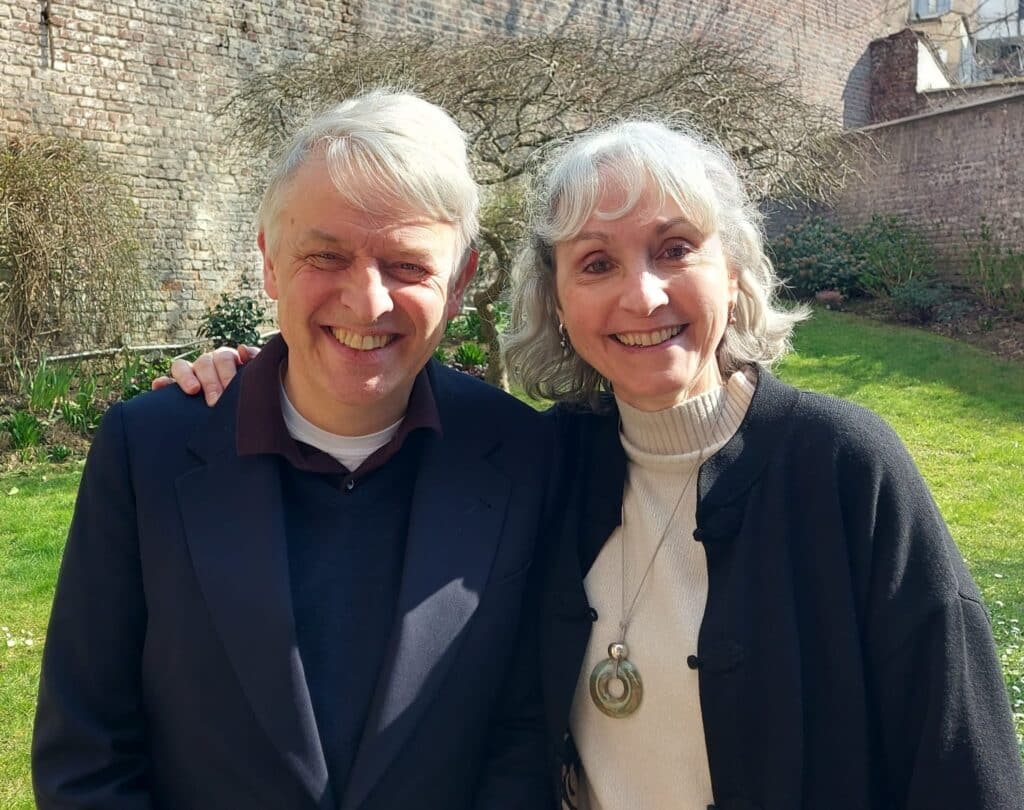ASF is a constantly evolving organisation. Faced with the growing diversity of its teams, its partners, its actions and the contexts in which it operates, ASF must adapt so that its operations and governance bodies remain in phase with what it is becoming and aspires to become. In 2024, ASF changed its Board of Directors, in particular by moving to a system of co-chairmanship, so that it is more representative of what the organisation is today and better able to support its development. Françoise Lewalle and Marco Schoups, co-chairmen of ASF, explain the choices made and the challenges involved in this transformation.
Why did ASF feel the need to review its governance model?
Françoise Lewalle: ASF is now an international organisation working to defend human rights in a dozen countries and collaborating with over thirty partner organisations. This level of diversity requires governance that can support, reflect and embody it. The move to a co-presidency reflects this transformation: evolving our structures to align with the challenges our teams face and the social realities in the countries where ASF is active.
Marco Schoups: It’s important to recall that ASF was initially a group of Belgian lawyers committed to defending access to justice abroad, inspired by the “without borders” model. Today, the organisation operates in several countries (Belgium, Italy, Kenya, Morocco, Niger, Uganda, the Democratic Republic of the Congo, the Central African Republic, Tanzania and Tunisia), and our teams are now predominantly made up of people from those countries. We work with a wide range of stakeholders — civil society organisations, legal professionals, social workers, institutional actors, traditional leaders, academics, etc. — on issues such as access to justice, detention, civic space, business and human rights, local and transitional justice, and migration. It is therefore logical for our Board of Directors to reflect this diversity.
Françoise Lewalle: We have thus opened the Board to members beyond the legal profession. The new Board members work, or have worked, on issues aligned with ASF’s mission and come from the nonprofit and academic sectors, among others. We hope that in the near future, Board members from ASF’s countries of intervention will also join us. This first co-presidency marks a step in that direction.
Marco Schoups: Defending fundamental rights, democracy, the rule of law and access to justice remains at the heart of ASF’s mandate. We are convinced that the only way to foster lasting change toward more just and inclusive societies is to join forces with as many actors as possible, adopting a holistic and multidisciplinary approach rooted in local political and social realities. The global context compels us to diversify both our partnerships and our sources of funding.
Why a co-presidency?
Marco Schoups: Historically, our Board was made up almost exclusively of lawyers. Maintaining a strong link with the legal profession and Belgian bar associations remains a priority, but the evolution of ASF’s mission calls for additional expertise. A more diverse Board enables us to better support our teams on matters such as governance, strategic vision, decolonisation, advocacy, fundraising and financial management.
The co-presidency is part of this process: bringing together someone from the legal field and someone from civil society creates balance, complementarity, and a more accurate reflection of what ASF has become. For this transitional phase, we have opted for a co-presidency that ensures gender and language balance, with individuals already engaged in the Board and familiar with its functioning.
This choice is part of a broader transformation, but it represents an important milestone.
What are the next steps?
Françoise Lewalle: As a Belgian organisation working primarily in Africa, we have a responsibility to fully engage in decolonising our approaches. Given the structural context in which it operates, ASF is committed to ensuring that its operating and governance models are anchored in local realities and foster the expression of diverse voices. This means strengthening our internal capacities to sustain this reflection and to move forward meaningfully. In recent years, ASF has granted more autonomy to its national and regional offices, and has started integrating decolonial approaches into its strategies and projects. This is a work in progress — far from complete — and our teams are right to expect us to commit to it fully.
What is the Board’s vision for ASF?
Marco Schoups: In an increasingly hostile environment for civil society, human rights, the rule of law and international cooperation, we face three major challenges: (1) providing a safe and supportive environment for our teams to encourage solidarity and collaboration; (2) securing our funding; and (3) identifying where ASF can be most useful and legitimate in the defence of human rights and the rule of law.
Françoise Lewalle: The Board is committed to ensuring stable and independent funding — which is no easy task in the current context. We also want to meet with each team individually to listen to their concerns and needs. We cannot claim to represent ASF without understanding the risks involved in human rights work in certain regions. It is imperative that we stay close to the lived realities of our teams.
Marco Schoups
Lawyer and former President of the Antwerp Bar
Françoise Lewalle
Lawyer and mediator at the Brussels Bar




